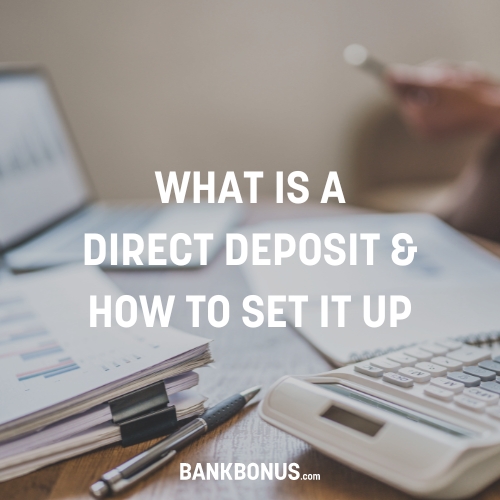There are two types of current accounts – both completely different. One is the consumer bank account, which UK residents can get from any high-street bank. The other type of current account is very different. Governments use it to record their transactions with the rest of the world.
In this article, we will be looking at a consumer Current Account – the kind of account you can get from UK banks to manage your finances.
What Is A Current Account?
Most UK banks offer this type of account, which is an everyday bank account primarily used to make and receive payments, including direct deposits. In many ways, UK consumer current accounts are equivalent to checking accounts in the US.
They come in different shapes and sizes, and generally speaking, have low entry requirements that most people can meet.
Current Account vs. Savings Account
This account is different from its sibling; the savings account.
Savings accounts are for saving money for a more extended period and typically earn an interest rate on balance – encouraging you to keep a healthy savings account balance.
Common Current Account Features
Although current accounts can vary from one bank to another, most follow the same structure regardless of the bank providing the account. These structures are, in many ways, the features of the account.
Knowing these features can help you understand whether it will be the right fit for you.
Online Banking
Online banking is a handy feature that accounts holders can use to manage their accounts online.
Typically, online banking is available through the bank’s website and allows you to view your balance and affect transactions, among other things.
One important thing to look out for here is security. Many banks employ high levels of cybersecurity, including key fobs and two-factor authentication.
The more security measures the bank uses, the more you can ensure that access to your account remains secure.
Mobile Banking
Mobile banking works very similarly to online banking; however, it works on mobile devices such as smartphones.
In such cases, banks provide a mobile app that may include features not available on online banking, such as instant alerts and the ability to quickly block and unblock your cards at the touch of a button.
Different banks may include different features in the mobile banking app. As such, it is worth taking some time to understand the features you would like to have access to the most, then ensuring the bank you choose has made those features available.
Overdrafts
An overdraft is the ability to withdraw more money than you have in your account. Here, the bank essentially lends you the difference you will need to pay back, including any interest.
Overdrafts often require an approval process through which the bank determines your ability to pay back.
Debit Card
A debit card linked to your current account allows you to withdraw money from ATM cashpoints and make purchases wherever debit cards are accepted. Often, the bank will partner with either Visa or Mastercard – known as the issuer.
Unlike credit cards, you need to make sure you have enough money to cover the purchase or payment when using a debit card.
Foreign Currency Payments
Depending on the type of current account you apply for, you may also have the ability to receive and make foreign currency payments.
Here, you will need to be mindful of the exchange rates on offer since you will still need to exchange the money for Sterling.
Chequebook
While cheques do not enjoy the popularity they once did, they are still a valid form of payment and something many people still use. Cheques are typically only available with current accounts.
Insurance
In the UK, personal deposits, including deposits you make into your current account, are insured by the FSCS (Financial Service Compensation Scheme) up to 85,000 Sterling.
This scheme works similarly to FDIC insurance in the US, whereby member FDIC financial institutions protect your money.
Other Features
Banks, like other businesses, compete for customers. One way they entice customers is by adding additional features and perks to their accounts.
Two such perks are sign-up bonuses and cashback programs.
While free money is always welcome, remember to check any terms and conditions associated with such offers, especially if you are undecided about which bank to join.
Doing this can help you take full advantage of what the bank offers and get rewarded for it.
Current Account Fees
While you can avoid most fees entirely, there may also be some restrictions or requirements.
This section will look at some of the most common fees and requirements associated with the account.
Monthly Fees
As the name suggests, monthly fees are fixed fees payable to the bank every month instead of costs associated with maintaining the account. Many accounts, especially lower-tier accounts, do not carry such fees; however, this is not always the case.
Furthermore, higher-tier accounts tend to carry such fees, which in most cases, the bank refunds when meeting specific criteria.
These criteria tend to change from one bank to another, so it’s always best to check beforehand if you have a specific bank in mind. Either way, such criteria may include keeping a minimum balance in your account or making a minimum amount of payments out of your account.
Balance and Deposit Requirements
The bank sets balance and deposit requirements, and a customer must meet them to avoid fees or keep their account open. These requirements usually apply on a per-account basis, and some accounts have no such requirements at all.
Knowing what these requirements, if any, are before opening an account is essential. Failure to meet such requirements can result in additional fees or the closure of your account if such requirements are in effect.
Transaction Fees
Transaction fees are fees charged for each transaction made. In most cases, domestic transactions are free of charge, with fees levied for international transactions, that is, transactions originating from or to the rest of the world.
Other transaction fees may apply when transacting in foreign currencies such as Euros or Dollars. In such cases, you should also be mindful of the foreign exchange rate since this can fluctuate.
Overdraft Fees
Overdraft fees are fees associated with overdrafts. In most cases, such fees are payable as an APR (Annual Percentage Rate) and can reach very high percentages. Unless it is essential, you should avoid overdrafts and their associated fees.
Make sure you check what APR the bank will charge you on any overdrafts before overdrawing your account to avoid nasty surprises.
Applying for a Current Account
Applying is easy. Most banks allow you to complete the process online; however, you can also visit a nearby branch if you prefer.
Most account opening procedures take a few minutes and tend to be similar across the board.
Anyone who is over 18 and a UK resident can apply. Some banks also allow EU residents to apply. You might also need to supply proof of address and employment information, including earned income.
One important thing that you need to be aware of is that the bank may also run a credit check on you. The bank will seek your prior consent, but it’s worth knowing anyway since this may affect your eligibility.
FAQs
What is a current account in a bank?
It is a bank account primarily for managing finances, including making and receiving payments.
They are not for holding large sums of money, typically held in a savings account where they earn interest.
What are a current account and its benefits?
The benefits of such an account will vary depending on the bank and the tier you choose.
Benefits may include a debit card to make payments, a mobile app to manage your account on the go, and an overdraft facility to manage unexpected expenses.





Comments are closed.
Comments are closed here.